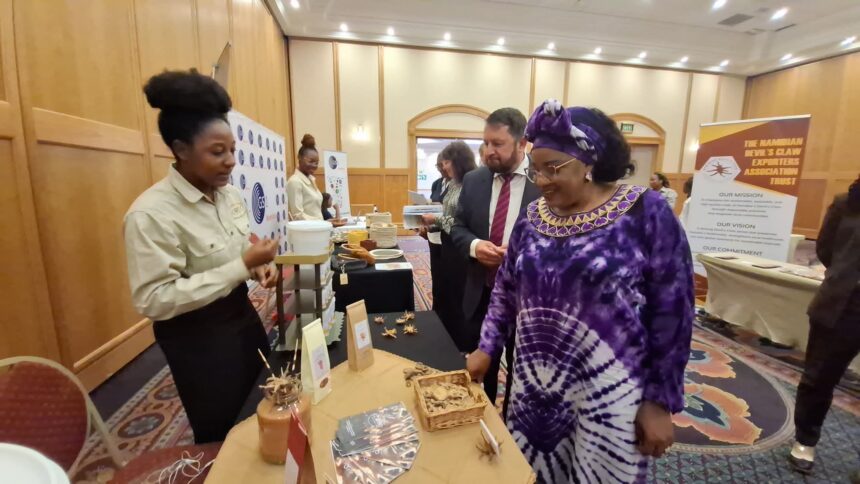Through Access and Benefit Sharing (ABS), indigenous people and local communities can secure fair monetary compensation from business partners, utilising valuable resources like marula oil, mangetti, devil’s claw, and many others.
This was the message from Verna Sinimbo, industrialisation and trade deputy minister who emphasised that Africa, and Namibia in particular, is a land of profound contract and boundless potential of biodiversity.
“It is a place where ancient traditions co-exist with a rapidly- evolving modern world. These indigenous natural resources are in demand and are often part of the ingredients in food, supplements, cosmetics and medicines,” she noted.
Sinimbo was speaking at a business forum in Windhoek this week where she engaged participants under a theme “Fostering European-African Partnerships: Promoting Domestic and Regional Cooperation for Bio-trade Innovations and Products”.
“It’s essential that as we commercialise these unique resources, we ensure that everyone in the value chain benefits to the fullest. This approach not only honours our heritage, but also fosters equity and sustainability,” she said.
She added that the industrialisation and trade ministry, in partnership with various stakeholders, is dedicated to supporting the local MSME ecosystem through targeted assistance programmes.
“Our equipment aid scheme is designed to help you acquire modern technological equipment that can transform your business processes, leveraging our traditional knowledge and resources. We need to focus on mechanising certain business activities to enhance capacity and promote growth,” Sinimbo added.
Other ministerial initiatives include the Industrial Upgrading and Modernisation Programme and the United States Africa Development Foundation. These programmes provide additional resources to medium and larger enterprises.
“For Namibia to fully benefit from the Bio-Innovation Africa Projects, we must commit to implementing the AFCFTA agreement. Locally, we need to ensure our products and services are ready for participation. Let us engage in partnerships and collaborations to process indigenous resources into value-added products, such as jams, cosmetics, health products, and sweets, among others. We need to accelerate our industrialisation agenda and diversify our export offerings. This requires collaborative approaches that leverage our strengths and ensure our innovations are rooted in the realities of our diverse environments,” said Sinimbo.
The deputy minister also encouraged the introduction of educational programmes aimed at cultivating a new generation of entrepreneurs equipped to navigate and lead in an integrated landscape.
“Let us consider how we can work together to strengthen our supply chains, enhance market access, and promote responsible bio-trade practices. The potential for job creation, environmental sustainability, and community empowerment is immense. By fostering cooperation, we can ensure that bio-trade not only benefits our economies but also uplifts local communities,” she said.


